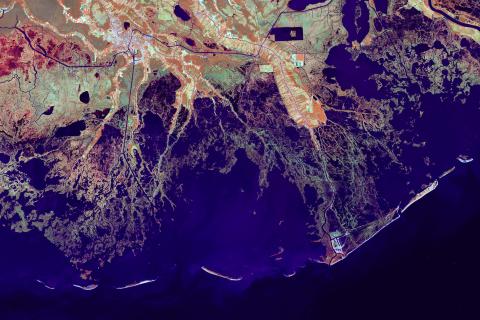The Louisiana Trustee Implementation Group has approved nine monitoring and adaptive management (MAM) activities to help assess the overall effectiveness of its Deepwater Horizon Natural Resource Damage Assessment and Restoration Program.
These activities meet data and information gap needs identified in the Implementation Group’s Monitoring and Adaptive Management Strategy (MAM Strategy), which was adopted in 2021. The MAM Strategy also outlines an approach for prioritizing MAM activities to achieve effective and efficient evaluation of the restoration of natural resources injured by the Deepwater Horizon oil spill in the Louisiana Restoration Area.
Eight of the approved MAM activities are listed below, in accordance with the restoration type each addresses.
- Wetland Coastal and Nearshore Habitat Restoration Type
- Barrier Island Comprehensive Monitoring (PDF, 33 pages)
- Characterizing Barrier Island Geomorphic State (PDF, 15 pages)
- Barrier Island System Management Program (PDF, 20 pages)
- Monitoring the Effects of Coastal Wetland Restoration on Fish and Invertebrates (PDF, 18 pages)
- Quantifying Changes in Wetland Area and Habitat Types (PDF, 23 pages)
- Sea Turtles Restoration Type
- Sea Turtle Habitat Use and Abundance in Eastern Louisiana Waters (PDF, 13 pages)
- Marine Mammals Restoration Type
- Oysters Restoration Type
The ninth activity, Louisiana Interactive Lessons Learned Database (PDF, 22 pages), is a programmatic and cross-restoration type assessment activity.
The combined budget for all nine MAM activities is $20.4 million and includes from one to five years of funding, depending on the activity.


